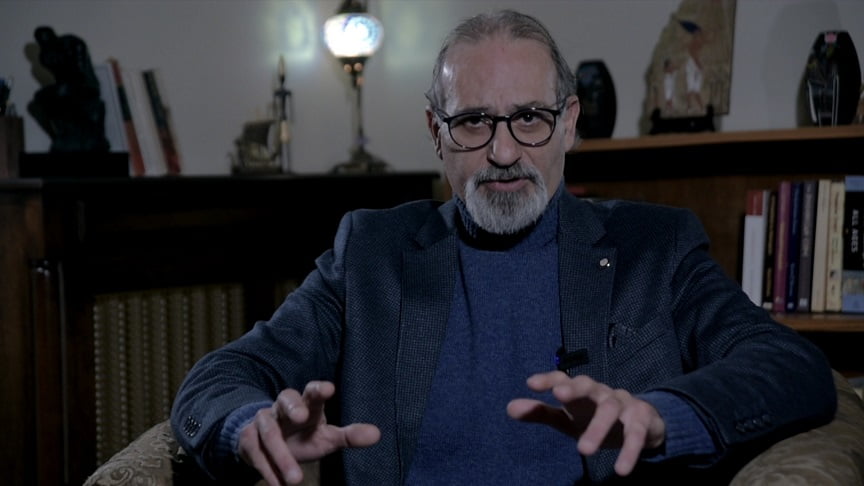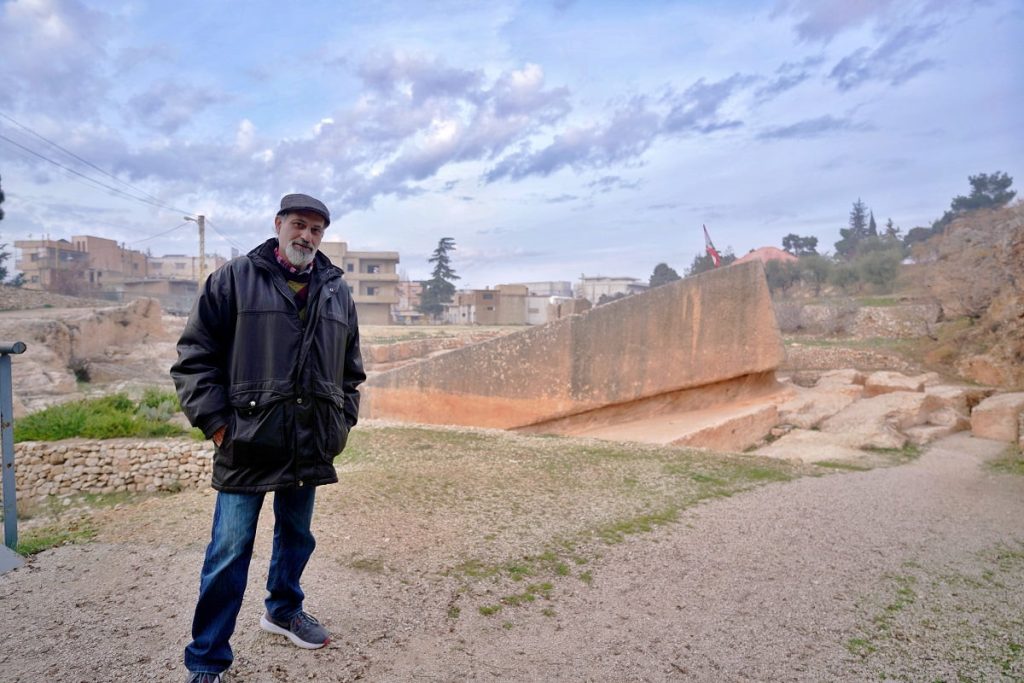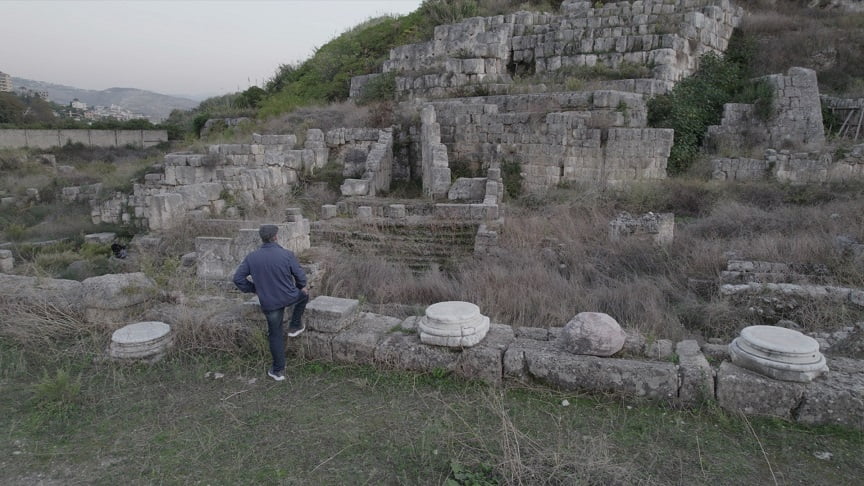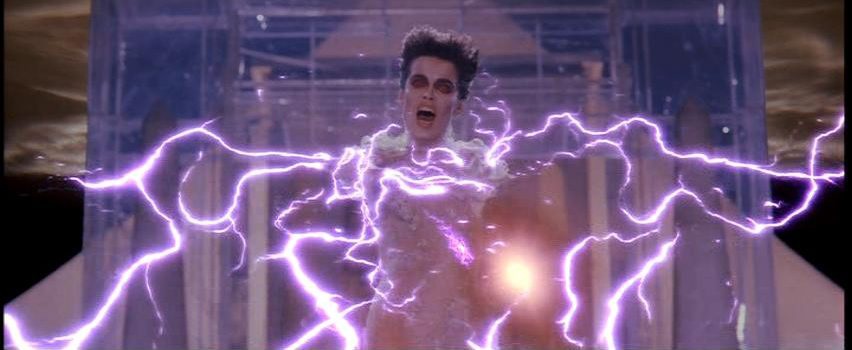
Best-selling Lebanese author Karim El Koussa just rounded up the filming of ‘Phoenix Oracle’. A new TV Show, inspired by his work, about the ancient Phoenicians, their history, mysteries and secret traditions. The Liberum spoke to El Koussa about his upcoming series at a coffee joint in the Lebanese capital Beirut.
By Arthur Blok & Emad Aysha
Time is a continuum. The past flows seamlessly into the present and, by extension, the future. And to get to the end in one piece, you always need the past as a guide. An area in which Arabs are sorely lacking, even more so in the case of the Levant, Lebanon included.
For too long, the Lebanese have been reading other people’s histories on their soil, from Alexander the Great onwards. What about what lay before? Who were the Phoenicians, what had they accomplished, and why do only a few people remember their significant influence on the world?
What about their offshoot, Carthage (in modern-day Tunisia)? If it weren’t for Hannibal the Great campaign against Rome (218-202 BCE) and Alexander’s bloody siege of Tyre in 332 BC, hardly anyone would have heard of them, and by design.
The Greeks and the Romans deliberately wrote them out of history, envious of them as competitors in the field of commerce and lords of the Mediterranean. Although we know that it was the Phoenicians who transmitted, thousands of years ago, the Phoenician script – the first phonetic alphabet in the world to the Greeks and became the Alphabet we know today.
The Romans, in particular, launched a black propaganda campaign against Carthage in the push for the final conquest and eradication of the city that invented concrete long before the Romans. They burnt every scrap of writing in Carthage and accused the Phoenician people of scarifying their firstborn sons.
The Phoenicians were hired by ancient Egyptian Pharaohs to circumnavigate the whole coast of Africa. They were the ones who made it to the British Isles, naming it Bar-Tanakh, the Land of Tin. El Koussa explained that the Phoenicians and Egyptians, in fact, share a common culture and theology.
“For example, the death of Osiris, whose body drifted to the Shore of Gebel, and his Resurrection later on by Isis, mirrors the death of Adon and his resurrection by Ashtarout, which suggests the Egyptians learned the “Myth of the Rising god” from the Phoenicians, who I believe were brothers.
So clearly, they were power brokers in the ancient world on multiple levels.
El Koussa has been trying to reassert the balance of historical consciousness back in favour of the Phoenicians and, in the process creating new future horizons for the Lebanese as a people and culture.
In that perspective, his new series has to be seen. “If all goes well, it will be broadcast between May and June. Post-production is scheduled for the middle of April. We hope it will be released on the relatively new ‘4bidden Knowledge’ or the quite established ‘Gaia’ streaming platforms. They both specialise in ancient traditions and everything related to archaeology, archeo-astronomy, and mysteries,” said El Koussa.
El Koussa emphasised that the series is unique in its content; nothing similar has ever been made: “People need to know the great history of the Phoenicians, especially our people. What great seafarers and merchants they were. Not only that, but they were indeed Masters of all Crafts!”
He expects the foreign audience to be surprised by the great civilisation they were. Most of the world’s attention has been on ancient Sumer and Egypt, while the Phoenicians are often forgotten.
El Koussa: “They were a people who are just as old as ancient Egypt. One of the powerhouses of an ancient civilisation. They were “Sacred Builders” with syndicates, like the purple dye they were famous for. Add to that their highly sophisticated theological systems.”

The crew hired by El Koussa for Zohar Entertainment Group, an independent UK based Production Company and Distributor, shot seven episodes on ancient locations such as Ehden (or Eden, north Lebanon), Mount Hermon (the Sanctuary), Ba’albek (Enochia in the old tongue), Byblos (or Gebel), Tyre (or Sūr), Saida (or Ṣīdūn) and, of course, Beirut (or Birot).
Five other episodes on great characters from Phoenician histories, like Enoch, Melki-Sedek, Hiram Abiff, Pythagoras and Jesus, were also produced.
El Koussa: “We relied primarily on ancient texts and orally transmitted esoteric knowledge, but also on sciences like anthropology, archaeology and archeoastronomy as tools to decipher and understand the magical traditions of the Phoenicians. In particular, the teaching of the Great White Fraternity. An ancient Phoenician-Egyptian mystery school.
The Lebanese author published four best-selling books - Pythagoras the Mathemagician, The Phoenician Code, Jesus the Phoenician, and The Kabbalistic Visions - of which the content plays a pivotal role in this new 12-episode, never-before-seen television or streaming series.
El Koussa: “The advantage is that I can present the teachings more visually. It allows me to explain all the ancient traditions and connections regarding science, religion, history, spirituality, philosophy and esoteric inner insights.”

El Koussa explained that shooting such a production in Lebanon is an adventure; it was a wild ride full of goofs and accidents. “We arrived in the Temple of Eshmun, an ancient place of worship dedicated to Eshmun, the Phoenician god of healing; We were surprised to find the place dirty. Junks on the ground, grass growing everywhere as nobody cares about this temple of this important god that goes back thousands of years ago. That was heartbreaking.
“Then there were the silly things that complicated matters. For example, when we were filming in my house, almost done with an episode or part of it, an ambulance passed by with sirens on, a truck or car sounding their horns, or children screaming or a dog barking... Another day, somebody knocked on the front door while filming, even though I put a sign saying: DO NOT DISTURB, WE’RE FILMING.”
The Lebanese author wrote and created the show and will also function as the narrator. Quite a responsibility, indeed. “I can not deny that. It is a first-timer for me, but I assure you one thing: it will be awesome.”
Keep visiting K El Koussa’s special section on The Liberum for the latest news and first trailers of Phoenix Oracle.






